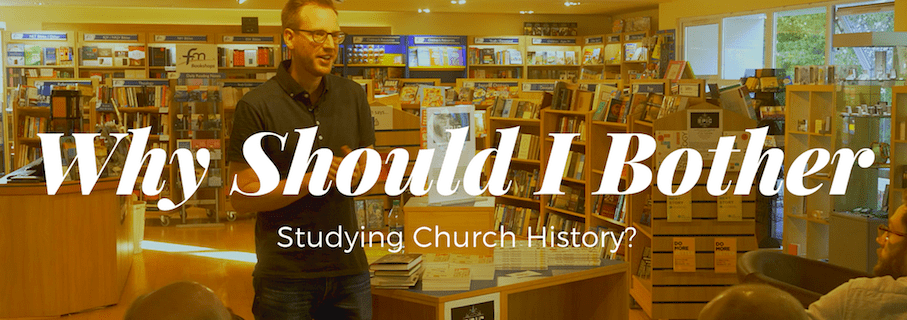On a recent trip to Scotland, I held an Ask Me Anything event at FM Bookstore and Cafe in Edinburgh. One of the questions I was asked was “what are the benefits of studying church history?” Here is my answer.
Transcript
What are the benefits of studying church history?
I think church history is an absolute key to understanding the present and the future of Christianity. So, one of the beautiful things about being in Toronto, a very multi-cultural church, and then, of course, traveling the world, is a very multi-cultural view of the Christian faith. What we all have to understand is that when you become a Christian, the history of Christianity becomes your history. Right, so it’s not just a history of this group of people. It’s like if you get adopted into a family, that family’s history is your history now, right. You get the name and you get the history. As believers, that’s exactly where we’re at. We’ve inherited, we’re joined into this stream that started 2000 years ago and may continue for another 2000 for all we know. And we’ve entered into this thing and we’re responsible to know it. I think there’s so many key things we can understand from history, so much we can understand about the present, so much we can understand about the future if we’ll look to the past. And so much we’ll miss, so much we’ll get wrong if we don’t look to the past.
So, I like to use the example of the emerging church. When that came along, if you remember that, back around 2000 or so, at that time church growth was sort of, people where getting tired of the huger, bigger, big box kind of Christianity and I think that’s where a lot of people ended up in the reformed stream, but a lot also ended up in the emerging stream. And it was fascinating to me that their theology was really all answered by Machen back in the days of theological liberalism. There weren’t any new arguments. And the same is true of the most liberal theologians today, people think they’re innovating, they think they’re coming up with new stuff, but it really just goes back. So we don’t have to grapple with these things as much as we just point back and say, ah yes, this person’s already addressed that. All these things have been said, you’re turning away from the inerrancy of scriptures, you’re turning away from penal substitutionary atonement. We don’t have to sit down and figure this out, we can just look back and say that’s been answered and answered very well. So many things that… there’s so much encouragement to be had.
To go back and find some of the people, even finding their artifacts, you know. Over in Belfast, getting Amy Carmichael’s bible out of the archives there, and they just hand you the bible and say, flip through it, read through it and just a real treasure you know. Here’s someone who for years ministered and wrote in that bible and you can just read how she was interacting with the Word, how she was engaging with the Word, how the Lord was speaking to her through the Word, how it was ministering to her in her high points and low points. It was just tremendously encouraging to look back to find that and to realize that whatever we’re going through today, somebody’s gone through in the past, both theologically and then just very much in the nitty-gritty of life. So, I found it a huge, huge blessing and encouragement.










